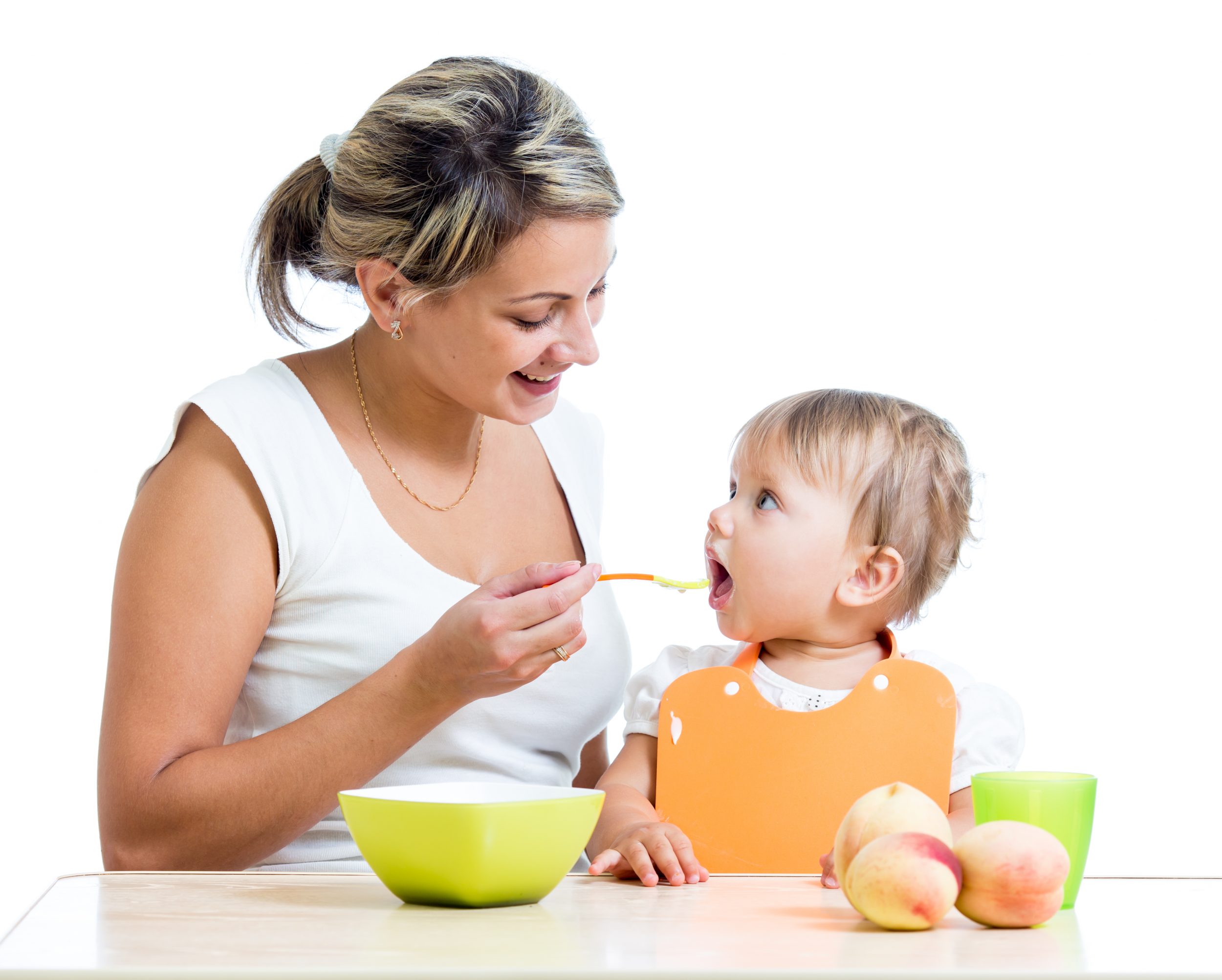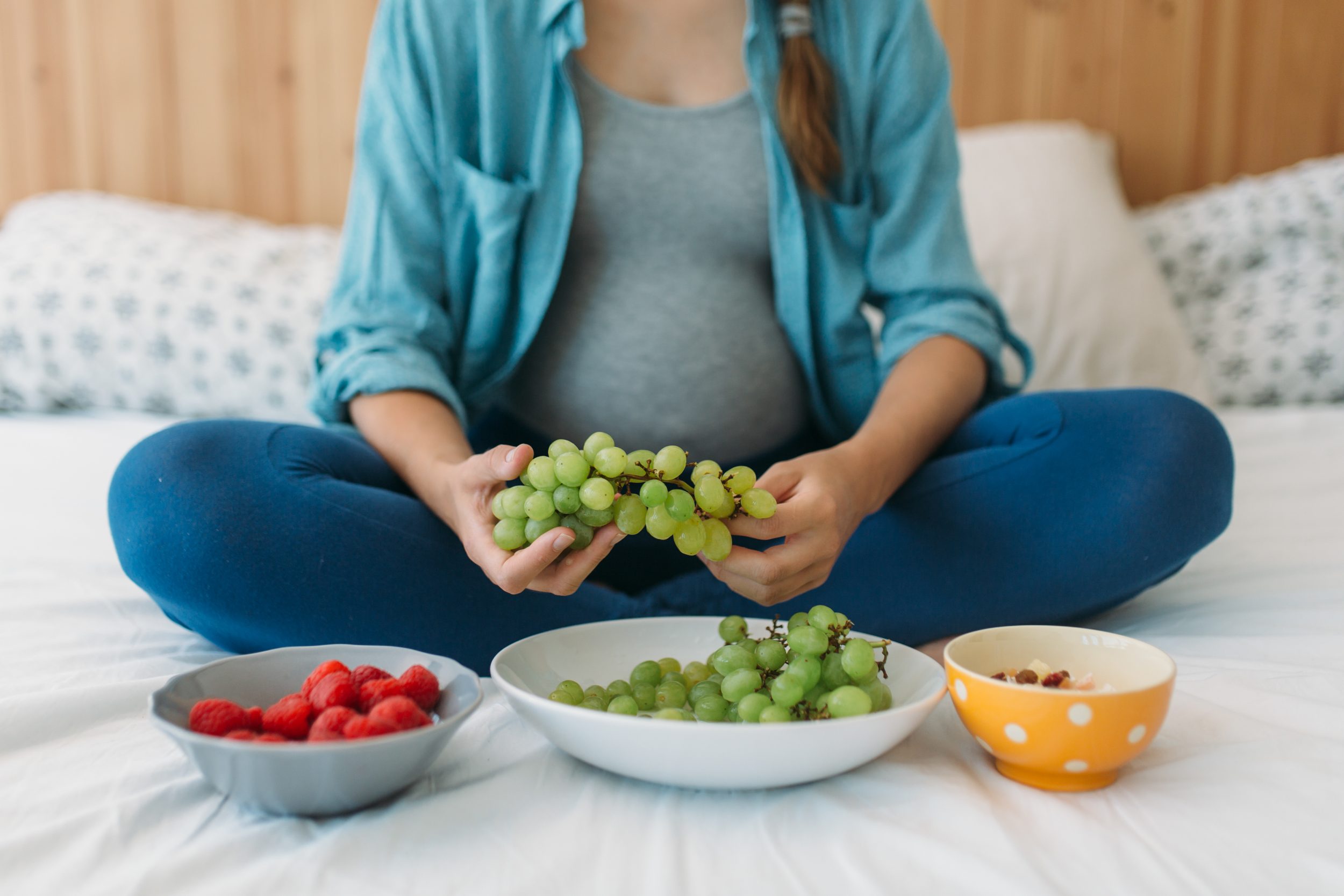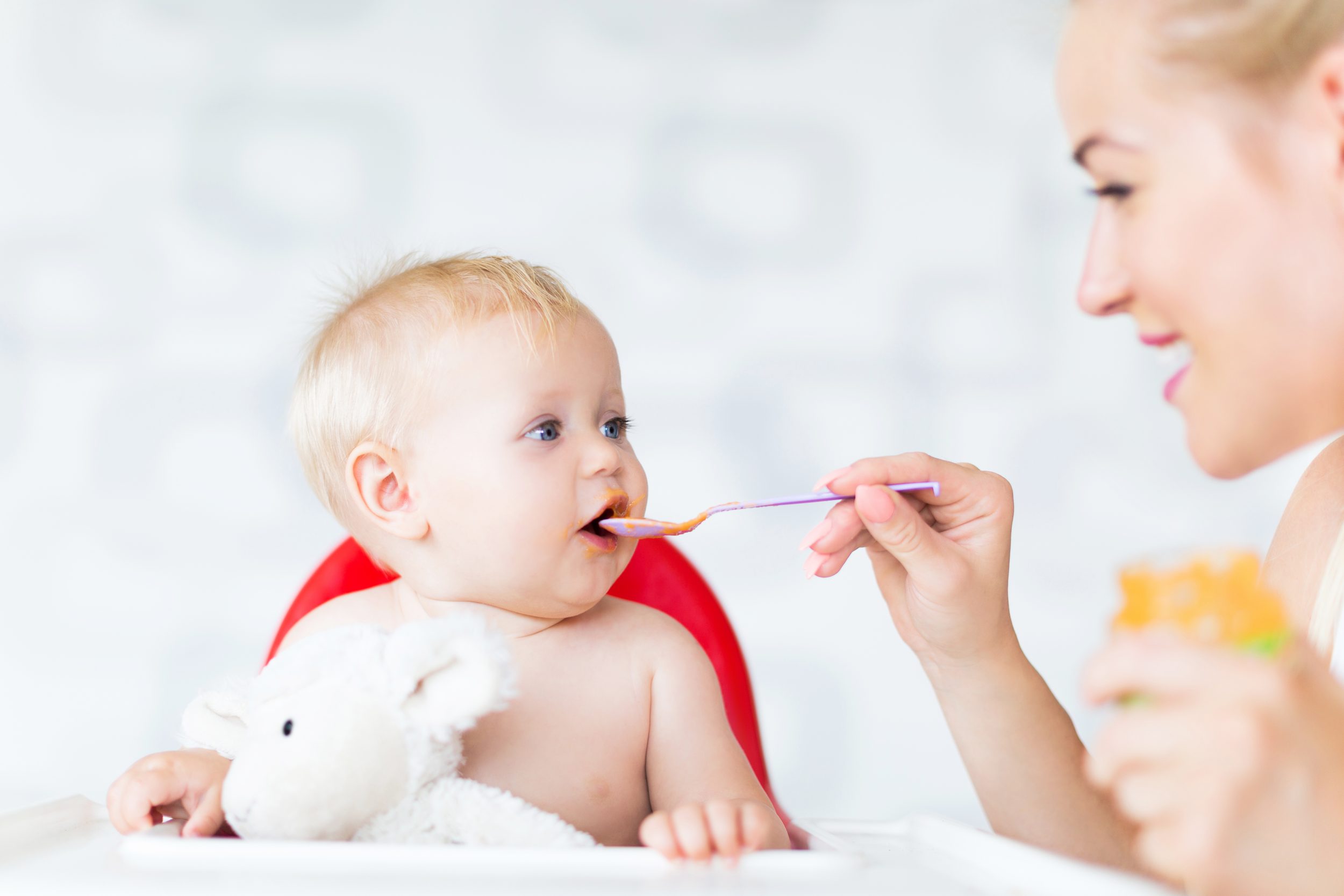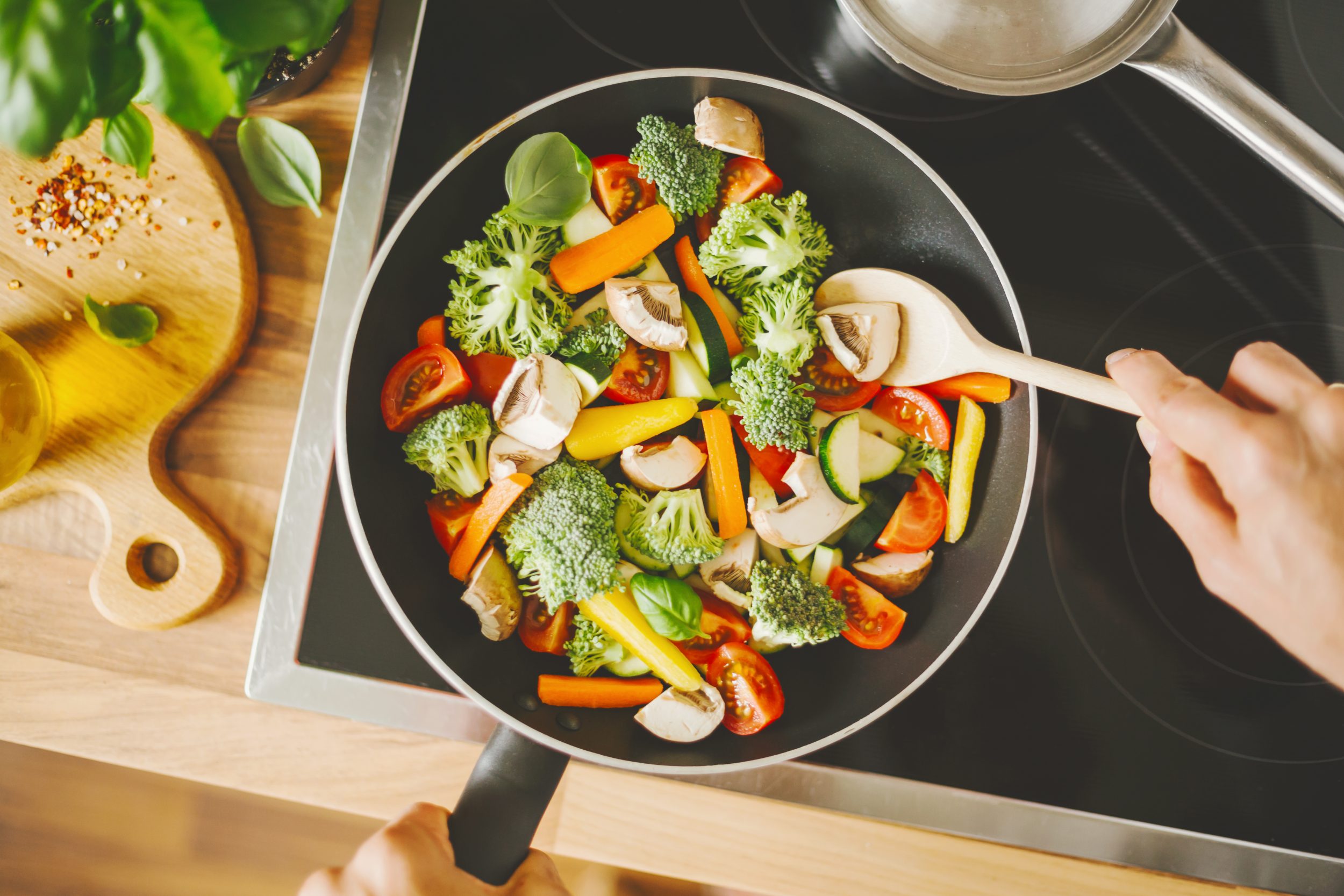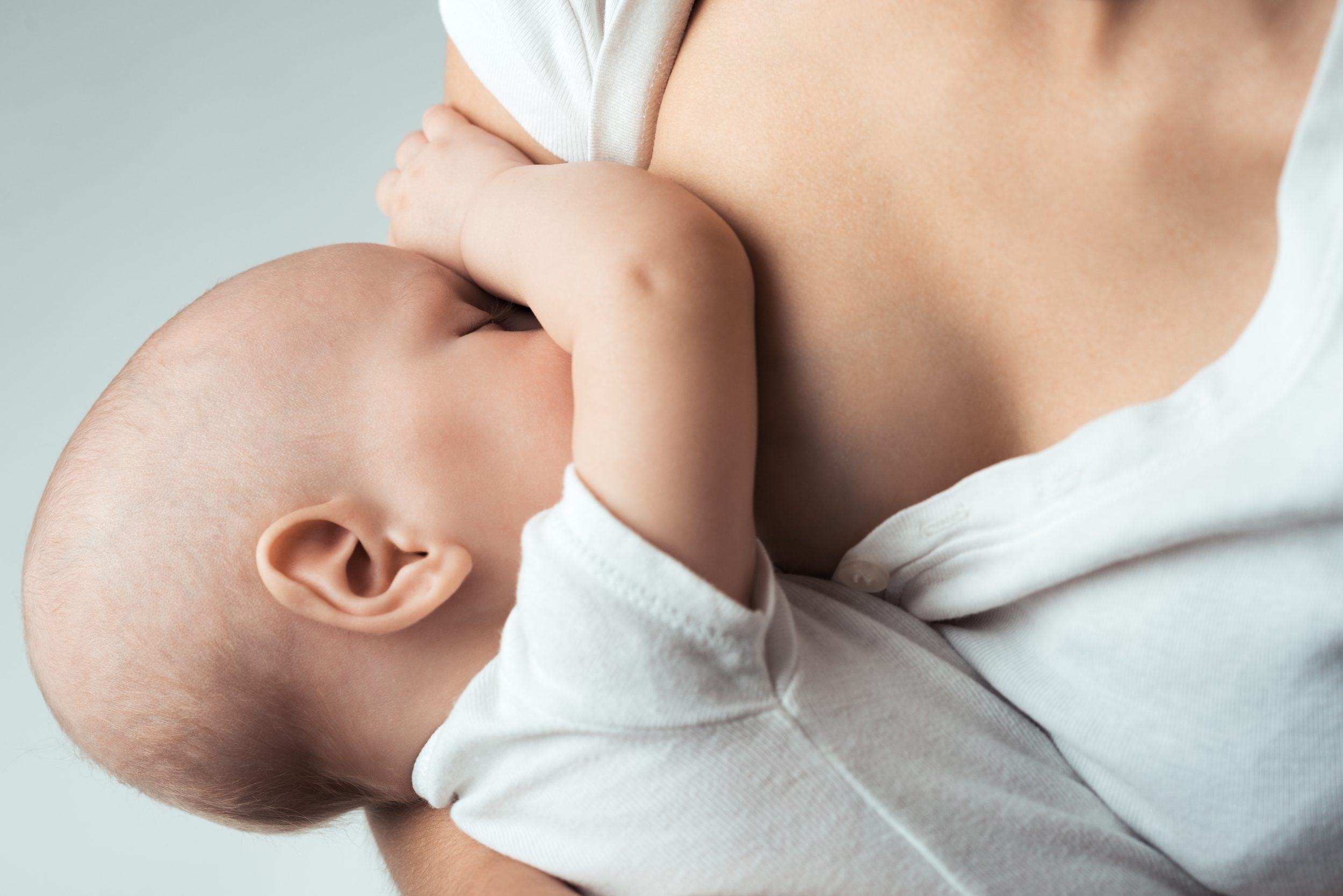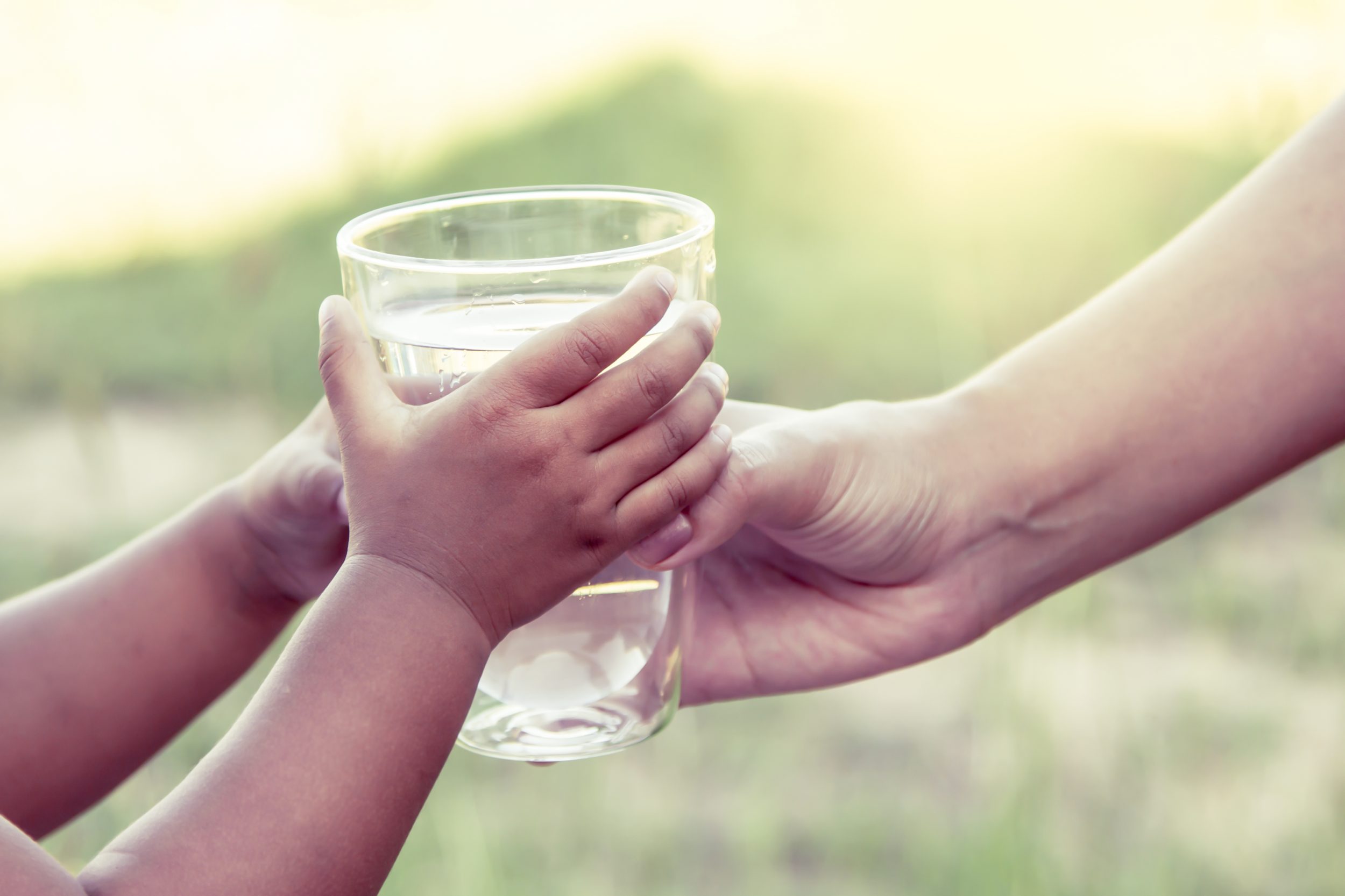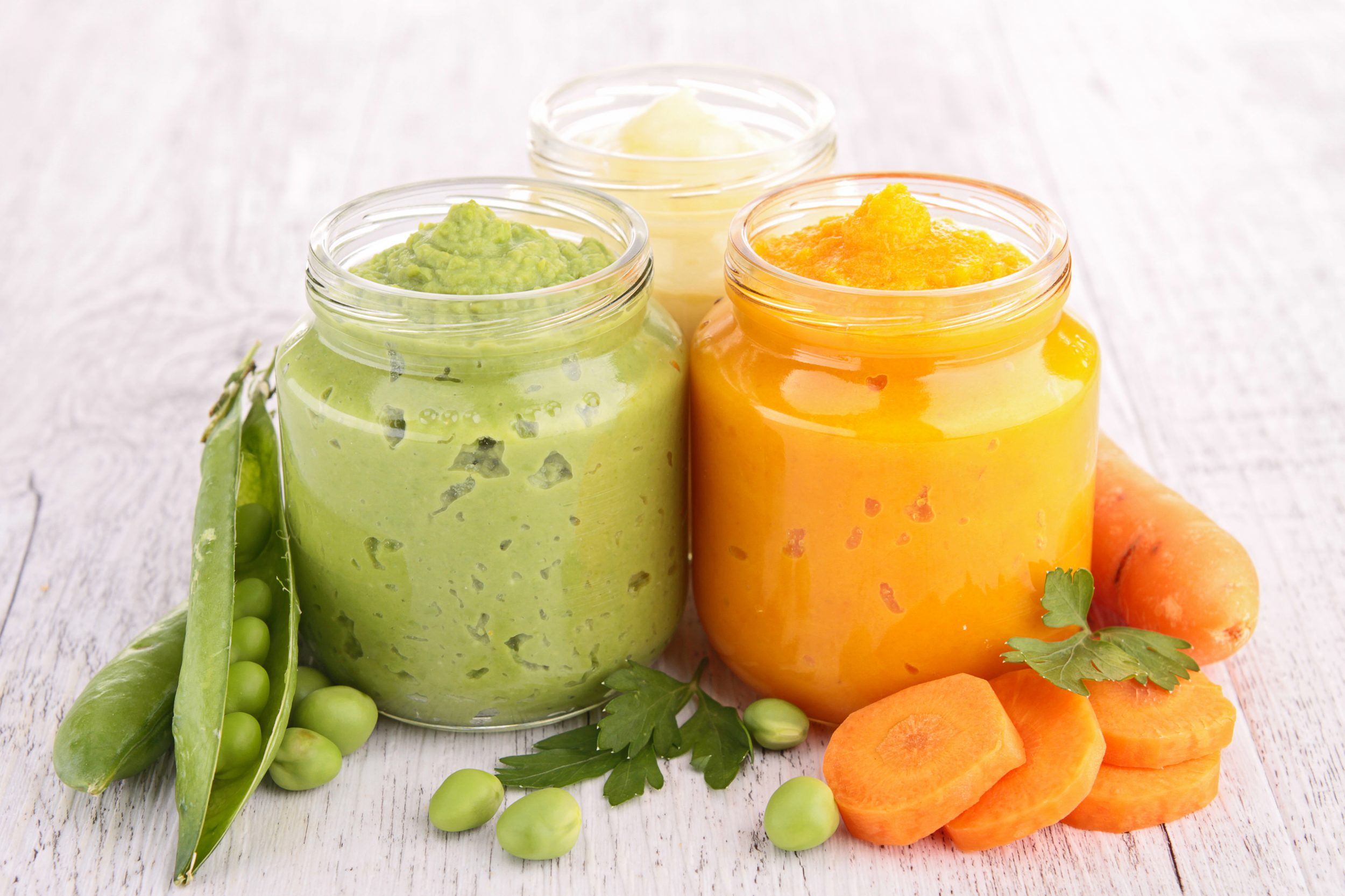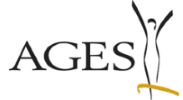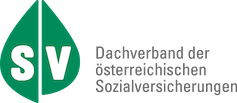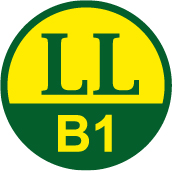
In the first few months, breast milk is the best food for your baby. If breastfeeding is not possible or only partially possible, give your child baby formula. When your baby is about 5 months old, breast milk or formula is no longer enough for your baby. They need additional food. This is called "solid food". You start giving solid foods as purees. Starting solid foods depends on your baby’s development. But you should not start solid foods before the 17th week of your baby’s life. That is about 4 months. Your baby should be introduced to solid foods at the latest in the 26th week of its life. That is about 6 months.
A few small spoonfuls of baby food are enough to start with. Give your baby 2 to 3 teaspoons. They must first learn to eat solid food. Over time, your child will eat more solid food. Take your time when feeding your child. This is especially important for the first few times. Even when your child is eating baby food, you should continue to give them breast milk or baby formula. This will ensure that your child gets enough nutrients.
Which solid foods should your baby eat?
It is a good idea to give your baby lots of different foods. That way, they get all the important nutrients. There are many nutrients in vegetables, fruit, and cereals.
It is important for your child's development that they get enough iron and iodine. There is iron in meat, cereals, and pulses, for example. Iodine is found in sea fish and other sea foods. For example, in salmon and prawns.
Iodine is also found in breast milk or baby formula. If you are breastfeeding, you should eat enough food with plenty of iodine yourself. This could be sea fish, for example. Only use salt with iodine.
If your child does not like certain foods, be patient. Try to offer the foods again later.
Cow's milk in the first year of life
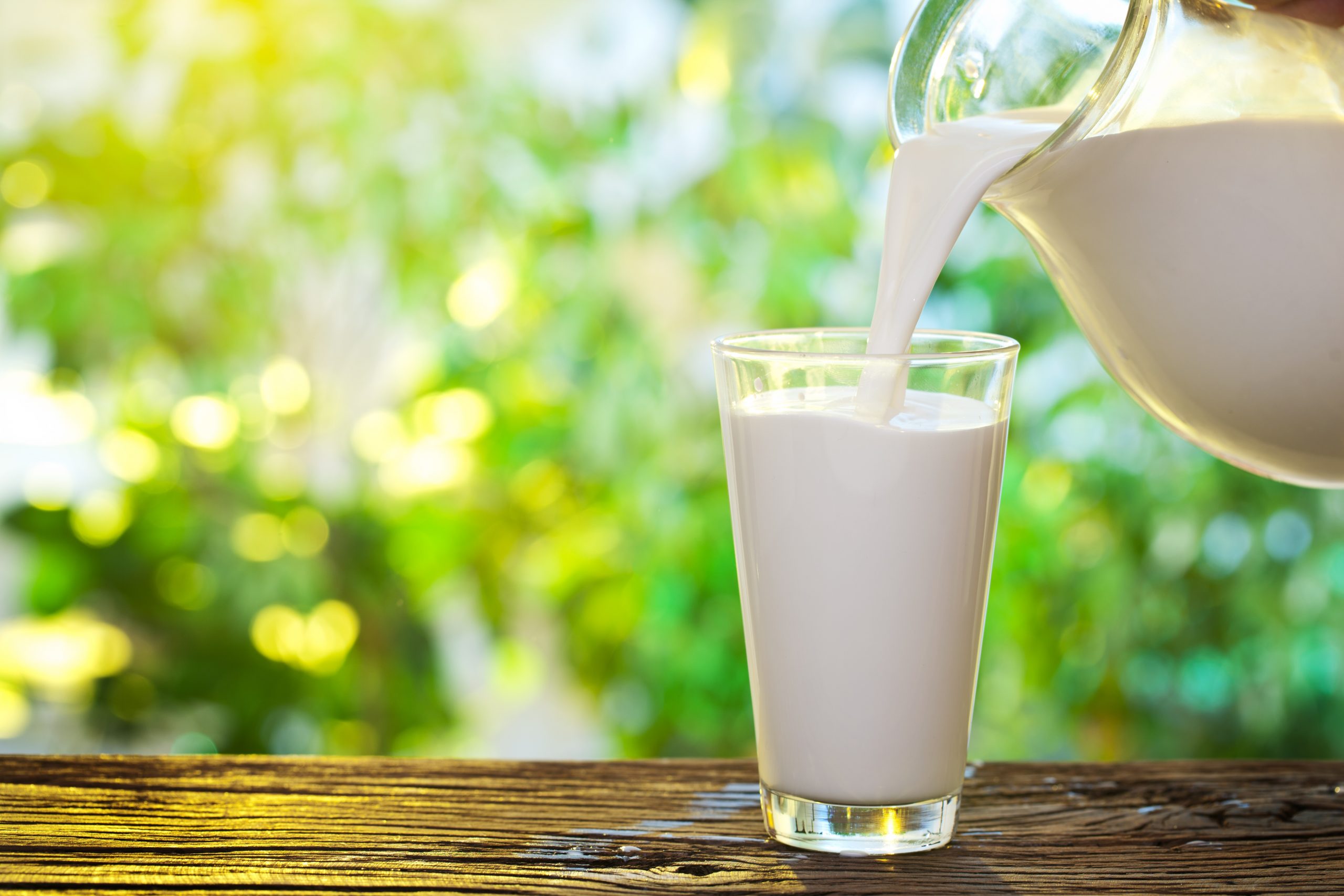
Babys sollten bis zum 6. Monat keine Kuhmilch bekommen. Ab dem 6.Monat können Sie Kuhmilch für einen Milch-Getreidebrei verwenden. Geben Sie Ihrem Kind diesen Brei aber nicht zusammen mit Fleisch. Mischen Sie auch kein Pflanzen-Öl in den Brei.
Offer your baby food with cow's milk only once a day. 100 to 200 millilitres of cow's milk per day is enough. As your child gets older, they can have more cow's milk. But cow's milk is not a suitable drink in the first year of life! Cow's milk is very nutritious. That is why it is a food and not a drink.
Cereals in the first year of life
“Gluten” is found in the following cereals:
- Wheat
- Rye
- Oats
- Barley
- Spelt
- Green spelt and Khorasan wheat (Kamut®)
- Triticale
- Tritordeum
- Emmer wheat
- several ancient cereals (Urkorn)
- Einkorn wheat
Only give your child a small amount of these cereals at the beginning. For example::
- half a slice of rusk (Zwieback) without sugar
- a small piece of bread of about 15 grams
- 1 tablespoon of pasta
- 1 tablespoon of flakes
- 1 teaspoon of semolina or flour, for example in a semolina porridge
Be careful! You must NOT give your baby these foods in the first year of life!
- Salt, sugar, honey
- Hot spices
- Dishes containing raw eggs or soft-boiled eggs
- Raw fish, for example smoked salmon
- Raw meat, for example steak tartare
- Offal, especially not liver
- Raw milk
- Cow's milk as a drink
- Curd cheese, flan, cheese
- Sausage products like ham, sausages, bacon, salami Würstel, Speck, Salami,
- Savoury snacks like crisps, crackers
- Chocolate, sweets, biscuits
- Soft drinks such as Coke, Fanta, or iced tea Eistee,
- Coffee
- Green or black tea
- Alcohol, not even for cooking
- Whole nuts or seeds, only finely ground nuts Brei.
When can your baby eat with the family?
Around the end of the first year of life, your baby will learn to eat with the family.
Do not season your baby's food. Remove your child’s part before seasoning. Only then add salt and other seasonings for the rest of the family.
Weitere Infos rund um das Thema Beikost finden Sie in unserer Broschüre „Mein Baby lernt essen“
It is again possible to order our brochures via the brochure service of the Ministry of Social Affairs. Via the following link https://broschuerenservice.sozialministerium.at or by calling 01 71100 - 86 25 25 free of charge.

